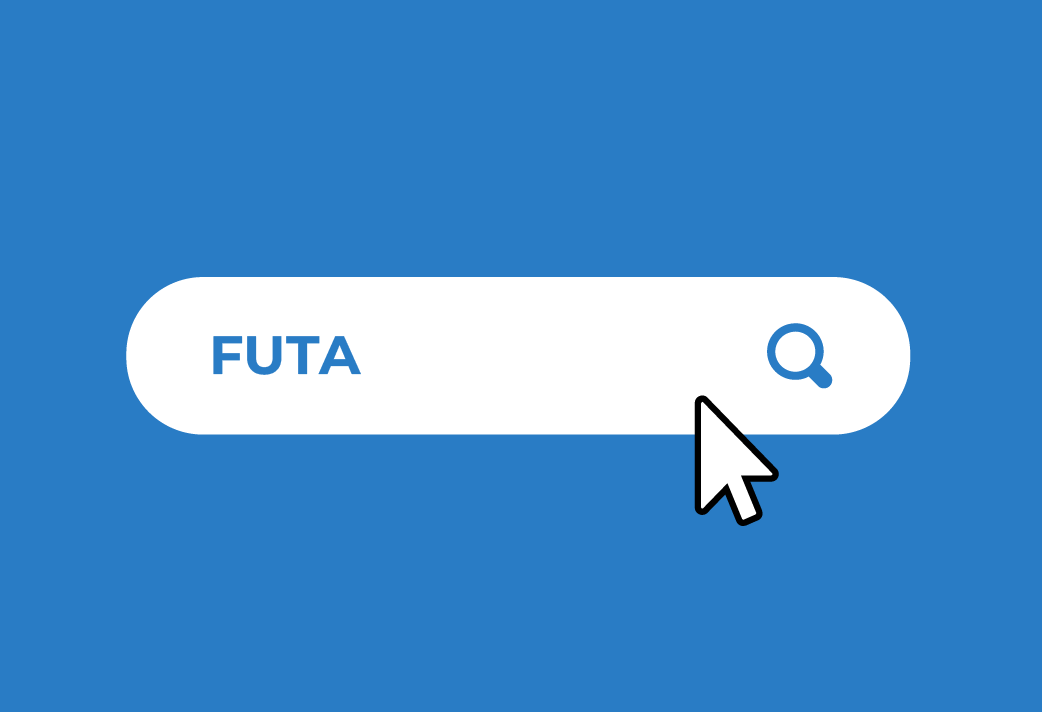The Federal Unemployment Tax Act (FUTA), enacted in 1939, is a critical component of the United States’ unemployment insurance system. Designed to provide financial support to workers who lose their jobs through no fault of their own, FUTA taxes are collected from employers and allocated to the federal unemployment insurance trust fund. This fund supports state unemployment insurance programs, covering administrative costs and funding extended benefits during economic downturns.
Unlike other payroll taxes, FUTA taxes are entirely the employer’s responsibility. Employees are not required to contribute, making it distinct from taxes like Social Security (FICA). The tax applies to the first $7,000 of wages paid to each employee annually, known as the FUTA wage base. Employers must understand FUTA tax requirements to ensure compliance and avoid penalties.
The Federal Unemployment Tax Act plays a vital role in maintaining US economic stability, especially during periods of high unemployment. By funding essential benefits, FUTA taxes provide a safety net for workers while supporting fair labor practices nationwide.
By understanding FUTA, employers can navigate their tax obligations in the US with greater ease, especially with support from INS Global, which offers tailored solutions to handle payroll and compliance.

Tired of scrolling? Download a PDF version for easier offline reading and sharing with coworkers
What’s FUTA’s Purpose?
The primary goal of the Federal Unemployment Tax Act is to create a financial safety net for workers who lose their jobs. It works alongside state unemployment programs, ensuring that workers receive timely benefits when they are unemployed through no fault of their own. The tax also covers the cost of extended unemployment benefits during economic downturns, providing crucial support to millions of Americans in difficult times.
FUTA funds are used for:
- Administrative Costs – The federal government covers the costs of managing state unemployment insurance programs.
- Extended Benefits – During periods of high unemployment, FUTA funds provide extended benefits to eligible workers.
- Loan Repayments – States that deplete their unemployment insurance funds can borrow from the federal government, and FUTA funds help repay these loans.
Employers are required to contribute to this system by paying FUTA taxes, which are then allocated to the Unemployment Trust Fund (UTF). This fund helps cover administrative costs for state unemployment insurance programs and supports federal extensions of unemployment benefits.
FUTA Tax Credits
Employers can take advantage of FUTA tax credits, which allows them to reduce their federal unemployment tax liability by up to 5.4% if they pay their state unemployment taxes (SUTA) on time. This means that instead of paying the full 6.0% FUTA tax rate, employers can pay as little as 0.6% on the first $7,000 of each employee’s wages.
However, employers in states with outstanding federal unemployment insurance loans may face a FUTA credit reduction, which increases their tax rate. It is essential for employers to stay informed about the status of their state’s unemployment fund to calculate their FUTA liability accurately.
How to Calculate FUTA Tax Liability
Accurately calculating FUTA tax ensures compliance and prevents overpayment. The calculation process is straightforward but requires attention to detail.
Step-by-Step Calculation
- Identify Eligible Wages – Determine which employees are subject to FUTA taxes and calculate the first $7,000 of their annual wages.
- Apply the Standard Rate – Multiply the wage base by the 6.0% FUTA tax rate.
- Account for the FUTA Tax Credit – Subtract up to 5.4% of the wage base if SUTA taxes are paid on time.
- Calculate Total Liability – Add up the FUTA liability for all eligible employees.
For instance, a business with 10 employees, each earning $50,000 annually, would calculate FUTA as follows:
- Wage base per employee: $7,000
- Total wage base: $7,000 × 10 = $70,000
- FUTA tax at 6.0%: $70,000 × 0.06 = $4,200
- FUTA tax credit: $70,000 × 0.054 = $3,780
- Effective liability: $4,200 – $3,780 = $420
Automating FUTA Calculations
For businesses with larger workforces or complex payroll systems, manual FUTA calculations can be time-consuming. Because of this, leveraging INS Global’s payroll management system as a global payroll outsourcing solution allows businesses to automate tax calculations, ensuring accuracy and compliance while saving valuable time.
Who Pays the FUTA Tax?
Not all employers may understand who is subject to FUTA, leading to confusion and the chance for wasted time and expense. For those local or international businesses who are unsure about their responsibilities, INS Global helps to determine if they meet FUTA eligibility requirements and ensures full compliance across various tax obligations.
Businesses
Most businesses are required to pay FUTA taxes if they meet the following criteria:
- They pay $1,500 or more in wages during any calendar quarter
- They employ one or more workers for at least 20 weeks in a calendar year
Household Employers
Household employers, such as those hiring nannies, caregivers, or housekeepers, are subject to FUTA taxes if they pay $1,000 or more in wages during any calendar quarter.
Agricultural Employers
Agricultural employers must pay FUTA taxes if:
- They pay at least $20,000 in wages to farmworkers in a calendar quarter
- They employ 10 or more workers during at least part of 20 different weeks in a year
Employers/Payments Exempt from FUTA
Certain employers and payments are exempt from FUTA taxes, including:
- Nonprofit organizations that are tax-exempt under Section 501(c)(3)
- Government entities, including federal, state, and local governments
- Payments made to the spouse, child, or parent of an employer
- Independent contractors, as they are not classified as employees
How to Pay and Report FUTA Taxes
Payment
Employers must deposit FUTA taxes quarterly using the Electronic Federal Tax Payment System (EFTPS). If the employer’s FUTA liability exceeds $500 per quarter, it must be deposited immediately while liabilities below $500 can be carried forward to the next quarter.
Reporting
Employers report FUTA taxes annually using Form 940, which must be filed by January 31st of the following year. Timely payment and filing are critical to avoid penalties and maintain compliance.
INS Global offers payroll management services that streamline payment and reporting processes, managing every element of reporting and ensuring employers meet their deadlines with ease.
Federal Unemployment Tax Act (FUTA) vs. State Unemployment Tax Act (SUTA)
While FUTA taxes fund federal unemployment programs, SUTA taxes support state-specific unemployment insurance systems. Employers are required to pay both FUTA and SUTA taxes, but timely SUTA payments can significantly reduce FUTA liability through the tax credit mechanism.
Each state sets its own SUTA rates and wage base limits, which can vary widely. Businesses operating in multiple states often face challenges managing these differing requirements.
Federal Unemployment Tax Act (FUTA) vs. Federal Insurance Contributions Act (FICA)
FUTA and FICA taxes serve distinct purposes. FUTA supports unemployment benefits, while FICA funds Social Security and Medicare programs. Unlike FUTA, FICA taxes are shared between employers and employees, with each contributing a percentage of wages.
FICA taxes apply to all earned income, whereas FUTA taxes are capped at the first $7,000 of wages per employee.
FUTA vs FICA
Although both FUTA and FICA taxes are mandatory employer obligations, they serve very different purposes. FUTA (Federal Unemployment Tax Act) is primarily focused on funding unemployment benefits for workers who lose their jobs. This includes providing temporary financial assistance through federal unemployment insurance programs, which is crucial for workers who are displaced from their jobs through no fault of their own.
FICA (Federal Insurance Contributions Act), on the other hand, funds two important federal programs: Social Security and Medicare. Social Security benefits include retirement, disability, and survivor benefits, while Medicare provides health insurance for individuals aged 65 and older.
FICA taxes are divided into two parts, one for Social Security and one for Medicare, and these taxes are shared equally between the employee and the employer. Unlike FUTA, which only affects the first $7,000 of wages, FICA taxes apply to all wages without a cap.
Simplifying Payroll Taxes with INS Global
Payroll taxes are notoriously complex across the globe, and errors can lead to significant penalties, fines, or even legal issues. That’s why navigating the various federal, state, and local tax regulations in the US, including FUTA, FICA, SUTA, and other payroll-related taxes, requires careful attention to detail for anyone looking at expanding in the US market.
Failure to comply with these regulations, whether due to incorrect filing, late payments, or misclassification of workers, can result in costly penalties, negatively affecting a company’s bottom line. However, ensuring that all of an employer’s responsibilities are met can take up a lot of time and budget space right at the moment when the attention of an expanding company is already stretched thin.
Given these factors, it’s not uncommon for businesses to experience confusion or make mistakes in their payroll processes.
This is where INS Global can step in to help. With our expertise in global payroll management, we provide tech-forward tailored solutions in payroll management, Employer of Record services, compliance assurance, recruitment, independent contractor management, and more in the US and beyond to simplify global strategy, ensuring accuracy and timely compliance with all employer obligations.
Our comprehensive approach, developed over nearly 20 years of global expansion experience, gives businesses peace of mind, knowing that their payroll taxes are being managed efficiently and in full compliance with all applicable laws.
While a host of other payroll outsourcing providers have popped up over the last few years, INS Global stands alone as truly ready to offer expert advice and support throughout all the common and uncommon issues faced by companies expanding globally.
Why not contact our expert advisors today to learn more? See how we can handle the rest while you can focus on what truly matters—growing your business.
FAQs
What is the FUTA wage base?
The FUTA wage base is capped at the first $7,000 of annual wages per employee, meaning FUTA taxes apply only to this amount.
How does the FUTA tax credit work?
Employers can reduce their FUTA liability by up to 5.4% through timely payment of state unemployment taxes (SUTA).
What are the penalties for late FUTA payments?
Late payments can result in interest charges and penalties. INS Global helps ensure timely compliance to avoid these issues.
Do all businesses need to pay FUTA taxes?
Most businesses are required to pay FUTA taxes, but exemptions apply to nonprofits and government entities.
How does FUTA support unemployment benefits?
FUTA taxes fund federal unemployment programs, which provide financial assistance to eligible workers.
Can INS Global handle FUTA compliance for my business?
Yes, INS Global specializes in managing payroll and tax compliance, ensuring employers meet their FUTA obligations effortlessly.



SHARE